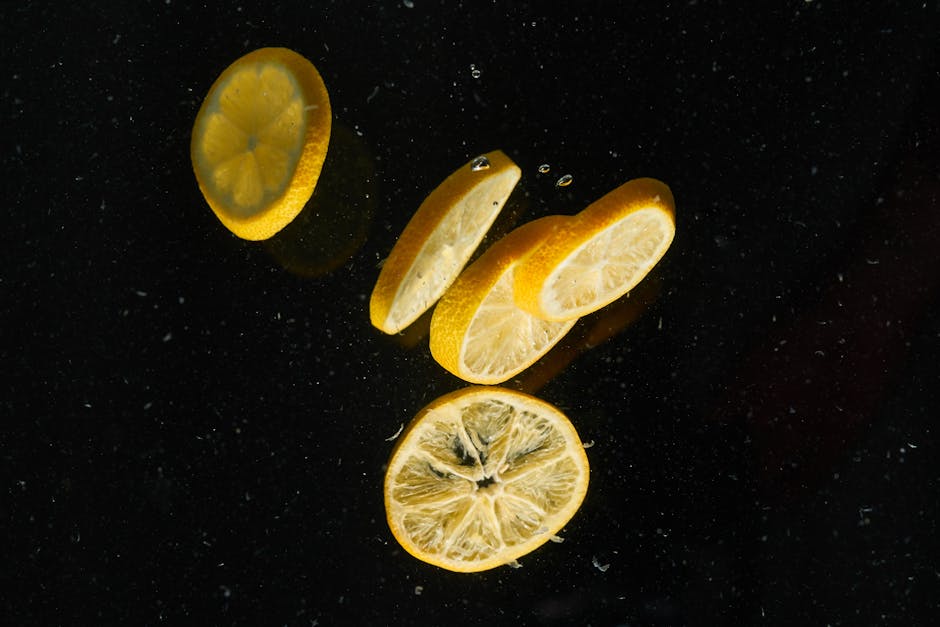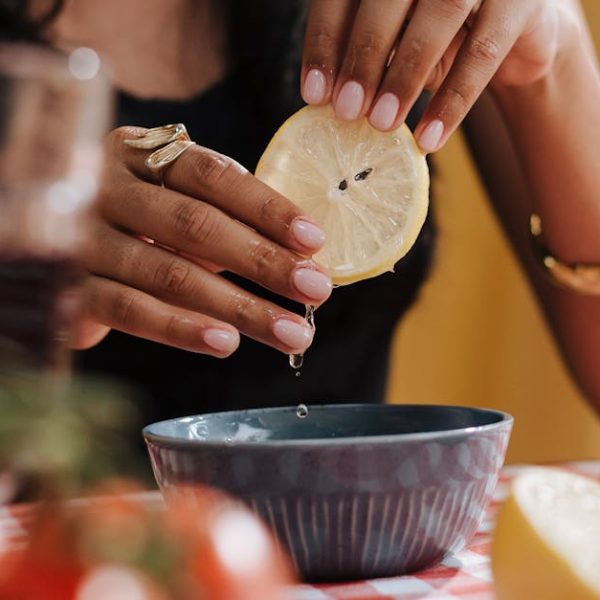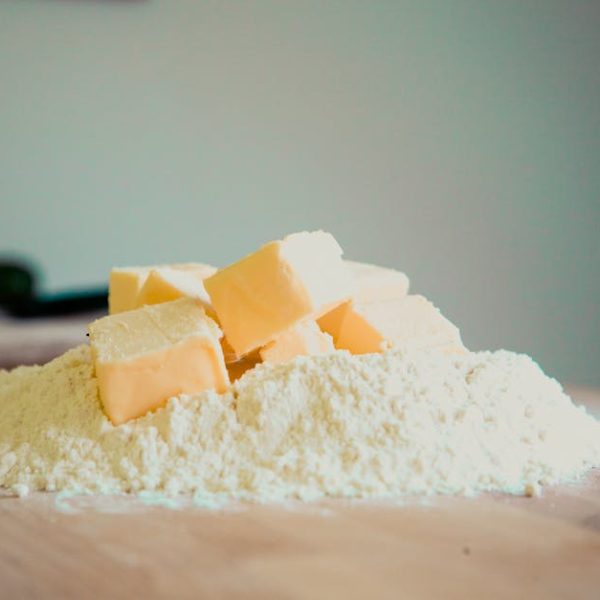In the realm of healthy beverages, lemon juice takes pride of place due to its high nutritional value and tangy flavor. Unfortunately, it’s also well-known for its short-freshness span, especially after squeezing the juice out. However, it’s not all doom and gloom. There are ways to keep your lemon juice fresh for more extended periods, and we’re here to discuss just that.
Why Is It Important to Keep Lemon Juice Fresh?
Freshness alters the taste of lemon juice significantly. Fresh lemon juice carries a crisp and refreshing sour taste, whereas stale lemon juice can adopt an unpleasant bitterness. Nutritionally, the vitamin C content in lemon juice is also sensitive to time, air, and heat, which means maintaining freshness is key to preserving its nutritional benefits.
Moreover, from a health perspective, consuming spoiled lemon juice can lead to foodborne illnesses. Hence, keeping your lemon juice fresh and safe to drink is definitely worth the effort.
Fresh lemon juice surpasses its bottled counterpart in several ways. Apart from the refreshing taste, it is free from additives and preservatives common in bottled lemon juice, making it a more suitable option for those keen on a natural diet.
Pro-tip: Bottled lemon juice may have a longer shelf life, but nothing beats the taste, nutrition, and additive-free benefits of fresh lemon juice.
Proper Storage for Freshness of Lemon Juice
Preserving the freshness of lemon juice starts with proper storage. The choice of storage container plays a significant role in the lemon juice’s shelf life. Airtight containers are the best bet to slow down oxidation, which can diminish taste and nutrition.
Here are a few options:
- Glass containers: Best for long-term storage due to non-reactive nature, but fragile.
- Stainless steel containers: Durable and non-reactive, but a bit expensive.
- Plastic containers: Cheap and unbreakable, but can contain harmful chemicals like BPA.
Refrigeration slows down the microbial growth, which means your juice will last longer before spoiling.
Best Practice: Always keep your fresh lemon juice in the fridge. It’s believed that cold temperatures slow down both the loss of vitamin C and the growth of bacteria.
Preserving Lemon Juice for Long Term Use
Freezing is an alternative solution for preserving lemon juice for a long time without loss of quality or nutrition content. Temperature, air exposure, and light are the main three elements you need to control during preservation.
Checklist of steps to preserve lemon juice:
- Store in small quantities for easy thawing.
- Use airtight containers.
- Keep containers opaque to block light.
- Place the containers at the back of the freezer where temperature is most consistent.
Just like refrigeration, freezing alters the rate of chemical reactions, preserving the bright flavor and vitamin content of your lemon juice.
Pro-tip: Consider freezing your lemon juice in ice cube trays. These lemon juice cubes can be conveniently added to your dishes or drinks. However, remember that freezing can slightly change the texture of the juice.
The Impact of Added Ingredients on the Freshness of Lemon Juice
Adding ingredients to your lemon juice like salt or sugar, or preservatives, can surprisingly affect its freshness. These added ingredients can prolong the shelf life, but they may also change the original taste and nutritional profile.
Natural preservatives like salt and sugar, in controlled amounts, can help balance the tartness while adding an extra flavor profile. As for artificial preservatives, they certainly prolong the lifespan of the juice but can alter its freshness and might also add unwanted chemicals to your diet.
Comparison:
| Natural Preservatives | Artificial Preservatives | |
|---|---|---|
| Effects on taste | Enhances flavor when applied in controlled amounts. | May alter original taste significantly. |
| Lifespan | Can prolong freshness for a few days. | Extends shelf-life greatly. |
| Health Impacts | Small amounts of sugar and salt do not harm a healthy diet. | Artificial additives can have adverse effects on certain health conditions. |
Pro and Con: The primary advantage of adding preservatives is the significantly increased shelf life of your lemon juice. However, the flip side is that these might alter the taste of the juice and could introduce unnecessary chemicals to your diet.
Symptoms of Spoiled Lemon Juice
As is with any food or drink, lemon juice has a point where it spoils and becomes unhealthy to consume. Spoiled lemon juice can result in food poisoning symptoms such as nausea, vomiting, or diarrhea. So, it’s crucial that you recognize the signs.
A change in smell and taste, the appearance of mold, or a thickened texture are all symptoms of spoiled lemon juice.
Checklist for identifying spoiled lemon juice:
- Changed smell or taste.
- Presence of mold.
- Thickened, less watery texture.
For your health’s sake, it’s always better to discard anything you suspect might be spoiled.
Best Practice: Regularly check your stored lemon juice. Be aware of its condition and make sure it’s safe to drink. You wouldn’t want to deal with food poisoning on top of your busy schedule. Remember, when in doubt, throw it out!
Key Takeaway:
- Fresh lemon juice has a superior taste and nutritional benefits compared to stale or bottled juice.
- Proper storage such as using airtight containers and refrigeration can extend the freshness of lemon juice.
- Preserving juice for long-term use can be achieved through freezing; controlling elements like temperature, air exposure, and light is essential.
- Adding ingredients like salt, sugar, or artificial preservatives can extend the shelf life but may alter taste and nutritional content.
- Knowing the symptoms of spoiled lemon juice (e.g., change in smell/taste, appearance of mold, and thickened texture) is crucial to prevent potential health risks.
Taking care of your lemon juice’s freshness is not rocket science. With the right storage and preservation methods, you’ll be able to extend the shelf life and preserve the nutritional value of your lemon juice. Stay vigilant for signs of spoilage to ensure your juice is always safe to consume. Now enjoy your lemon juice!
FAQs
Q: Can I freeze my fresh lemon juice without losing its benefits?
A: Absolutely! Freezing is an excellent long-term preservation method for lemon juice. It slows down the chemical reactions, thereby preserving the flavor and nutritional elements, especially Vitamin C.
Q: Does adding sweeteners affect the freshness of lemon juice?
A: Sweeteners like sugar can extend the shelf life of lemon juice. However, keep in mind that they might change the original taste and nutritional profile of the juice.
Q: Are there any health risks associated with drinking expired lemon juice?
A: Yes, consuming spoiled lemon juice can lead to foodborne illnesses, with symptoms like nausea, vomiting, or diarrhea. Therefore, it’s essential to identify and discard any lemon juice that shows signs of spoilage.
Q: How can I best identify if my lemon juice has spoiled?
A: You can identify spoiled lemon juice through changes in smell or taste, the presence of mold, or a thickened, less watery texture.
Q: Is bottled lemon juice a better option for long-term use compared to fresh lemon juice?
A: While bottled lemon juice may have a longer shelf life, it often contains additives and preservatives that can alter its taste and reduce nutritional benefits. For maximum taste and nutrition, fresh lemon juice is recommended even for long-term use, given you use appropriate preservation methods like refrigeration or freezing.
Share this article with your friends who could benefit from this information, and explore more posts on our website for additional insights on healthy living.






